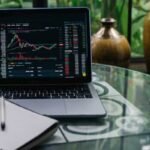PORTLAND, OREGON – DECEMBER 01: Luka Doncic #77 of the Dallas Mavericks is introduced before the … [+]
Saturday was one of those nights in the NBA landscape that you’ll never forget.
Fans, players, media members, and front office executives all shared the same reaction when the Dallas Mavericks traded All-NBA phenom Luka Doncic to the Los Angeles Lakers in exchange for Anthony Davis, Max Christie, and a 2029 first-round draft pick.
It was a landmark moment in the sports world – a moment that you’ll always be able to recite where you were, what you shouted, and who you called to discuss the news.
Any person that cares about the NBA or works in the basketball industry is no stranger to seismic events.
Take a trip down memory lane to recall when Kevin Durant revealed his free agency destination in July 2016, which launched a flood of vitriol and criticism across the Internet.
Or, fast forward three years later, when Kawhi Leonard and Paul George landed with the Los Angeles Clippers in a move nobody expected – on the night of a literal earthquake.
What transpired between the Lakers and Mavericks, though, was simply different. This latest blockbuster deal is in a class of its own.
Saying this is the most stunning NBA trade in the league’s 78-year history is not hyperbolic because of the context of who was dealt.
Doncic is only approaching his 26th birthday, has already been named to the All-NBA First Team five consecutive times, and just fueled the Mavericks to the NBA Finals eight months ago.
Averaging 30.9 points across his 50 career playoff games, he’s second all-time … behind only Michael Jordan.
He trails only Russell Westbrook, Oscar Robertson, and his new teammate LeBron James in 30-point triple-doubles in NBA history despite being in his seventh year. Calling Doncic a ‘generational’ player doesn’t do it justice, simply because of his unique blend of shot creation and brilliant playmaking vision in a 6-foot-7 frame.
He’s a walking top-five offense due to the attention he commands on every possession. In fact, no other player has been doubled or trapped more on pick-and-rolls in the last three seasons. None. Defenses around the league are routinely focused on selling out to stop him.
Players of this caliber – on a trajectory to become a Mount Rushmore figure – don’t get traded.
Superstars at this age, clearly ahead of schedule in terms of playoff impact, don’t get traded.
And if they do, through wild circumstances, the team forfeiting such a transformational talent will be replenished with draft capital to build an even stronger team.
The Mavericks committed both NBA cardinal sins, giving up Doncic without demanding a fair return.
If 99% of the social media audience is rapidly checking if the trade is fake and choosing to believe the reporter was hacked, there’s probably a reason why.
That doesn’t mean Anthony Davis has lost his value. As a defensive anchor and a dominant paint finisher that can offer lineup flexibility, he’s having an impressive season. Davis is still in the top 15 of most impact metrics (such as EPM) and was the Lakers’ best player all year.
At the same time, he’s about to turn 32 (six years older than Doncic), doesn’t have a great track record with injuries, and doesn’t supply the Mavericks with nearly the same level of playmaking that Doncic did every night.
Considering it was Mavericks GM Nico Harrison that orchestrated the deal, it leads you to believe he was eyeing Davis for a long time. There had to be some level of fixation with the Davis and Kyrie Irving fit.
Harrison told ESPN’s Tim MacMahon that he thinks “defense wins championships” and Davis provides a cleaner path. He reportedly added: “I believe that getting an All-Defensive center and an All-NBA player with a defensive mindset gives us a better chance – We’re built to win now and in the future.”
LOS ANGELES, CALIFORNIA – JANUARY 17: Anthony Davis #3 of the Los Angeles Lakers handles the ball … [+]
First of all, that just screams old-fashioned thinking. In the modern NBA, offensive versatility and firepower is always king.
What’s more concerning, though, is Harrison forgetting that his Mavericks already addressed the team’s defense last February, which catapulted them into an NBA Finals run. After trading for center Daniel Gafford and forward PJ Washington, they went 22-9 to close out the season with the No. 7 defense in the league.
It was proven – a formidable defense could fit around Doncic and propel the team forward. They dispatched the Clippers, upset the Thunder, and made easy work of the Timberwolves to reach the Finals.
The blueprint was there.
Did Doncic missing half of this season with a calf strain ultimately change their mind? Did the Mavericks associate his recent injuries with the fact he came into training camp heavier than last year?
MacMahon did report that Dallas was concerned about Doncic’s commitment to his body and conditioning, which indeed was a recurring theme since he arrived in Dallas in 2018.
Even if that’s the case, this was the NBA’s worst all-time example of asset management. And it’s not even close.
Doncic was just months away from being presented a five-year, $345 million supermax extension, which could have tied him to the Mavericks for the long haul and given the team more leverage in future trade discussions, if it reached that point.
But apparently, the organization wanted to wash its hands clean of Doncic and had no interest waiting.
On the player side, this trade makes Doncic ineligible for the supermax, a deal that allows players to re-sign at 35% of the salary cap with the team that originally drafted them.
According to cap expert Bobby Marks, Doncic could still recover most of his earnings if he signs a three-year extension with the Lakers this summer, opts out in 2028, and re-signs after reaching 10 years of service, which automatically gives veterans a larger percentage of the cap.
But even if that process is executed, Doncic will be paying state income taxes in California – something he didn’t have coming out of his checks in Texas.
MINNEAPOLIS, MINNESOTA – MAY 30: Luka Doncic #77 of the Dallas Mavericks celebrates with is father … [+]
Look, the Mavericks are undoubtedly operating with more information and knowledge of Doncic’s professional career, including the specifics of his medical history, his off-court habits, and leadership in the locker room.
That much shouldn’t be questioned. Harrison and the Mavericks have the most insight.
However, even in a doomsday scenario where it was untenable to keep Doncic and your franchise felt uneasy about committing $345 million to him, this was the worst possible way to handle it.
This is exactly like a free agent deciding they will meet with five teams and listen to their pitches, only to take one and cancel the rest just because an executive treated them to their favorite restaurant.
There are still four days left before the trade deadline with no urgency to rush.
Any rational front office – one that understands how blessed they are for Doncic falling in their lap seven years ago – would diligently search the market, hold a bidding war, and wait for the right deal to materialize.
There is no settling when you have the player in your backyard. There is no settling when that player is under contract for (at least) 16 more months, and no player has ever turned down an extension as lucrative as the one you would’ve had in the toolbox.
But most importantly, there is absolutely no settling before listening to other offers and trying to get the proper return on your investment.
As reporter Jake Fischer indicated, the Mavericks were only calling other teams for additional salary purposes, not to gauge their interest on Doncic.
While it’s not technically malpractice, it’s certainly the NBA equivalent.
For instance, how is Oklahoma City not even contacted to discuss draft compensation as a return package? How is Sam Presti not the very first number you dial, just to see how many first-round picks they would part with to get Doncic?
Instead, the end result is watching the most talented player in franchise history (who still had room for improvement) walk out the door and join an organization that cycles through NBA legends every decade.
Couple that with the Mavs watching Jalen Brunson leave in free agency three years ago, electing not to pay him, and that’s two MVP candidates they’ve lost for Davis, Christie, and one first-round pick.
There is no justifiable reason for trading away the next 10-15 years of the franchise unless Doncic threatened to retire if they didn’t send him to Los Angeles. Based on the reporting, that was far from reality.
Harrison and the Mavericks will have to take this on the chin, while praying that future free agents aren’t turned off by how the franchise blindsided Doncic.
Because if the team’s cornerstone and one of the most gifted players on Earth is moved without even being consulted, nothing is off limits for that front office moving forward.
If that’s the precedent Dallas wants to set, they will have to live with any repercussions.
The only major event that rivals this is Kareem Abdul-Jabbar being traded to the Lakers in 1975. Abdul-Jabbar was in the prime of his career at 27 years old and had already won a championship with the Milwaukee Bucks. But, that’s not even analogous because he requested a trade.
In one swift move, the Mavericks drastically lowered their playoff ceiling and set up the Lakers with their next icon once James retires. Based on the way Jeanie Buss and the Lakers organization have treated superstars in the past, you can almost guarantee they won’t make the same mistake.





